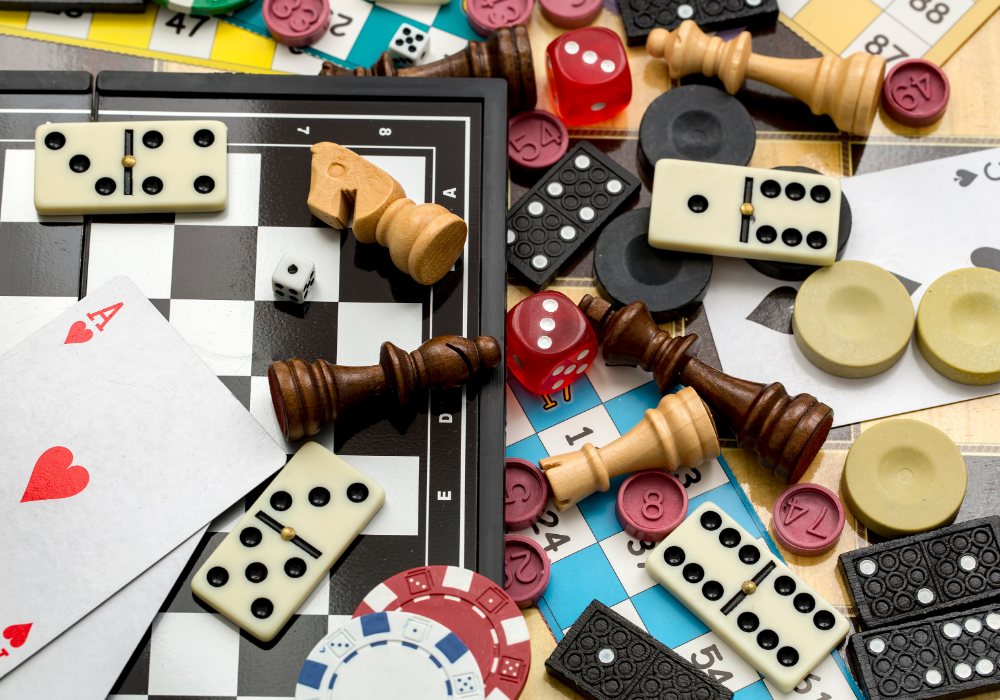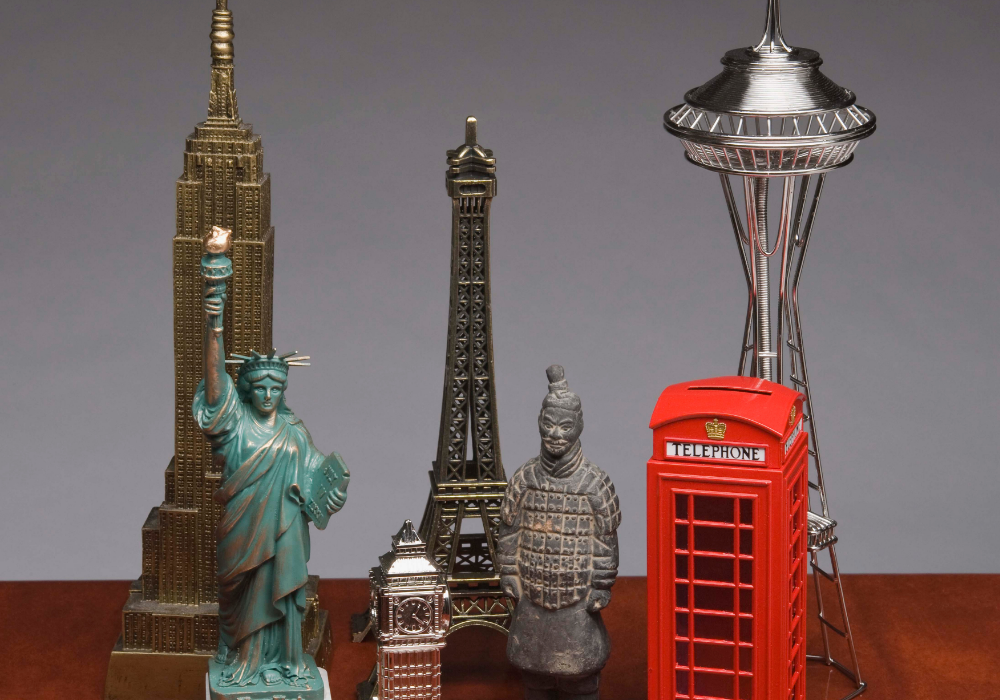These “keepsakes” aren’t comforting—they’re quiet reminders of what you lost.

We all hang on to stuff—an old T-shirt, a dusty box of letters, that gift you never really liked. It’s easy to convince yourself these things are harmless or “just sentimental,” but sometimes they’re really holding onto something deeper: regret. Whether it’s about a lost relationship, a missed opportunity, or a path not taken, these hidden symbols quietly whisper stories we’d rather not face.
The problem is, these items can trap us in the past and keep old wounds alive. You think you’re preserving a memory, but you’re often feeding a cycle of “what if” and “I should have.” Recognizing these objects for what they really are can feel tough—but it’s also the first step toward finally letting go and moving forward. Here are 13 surprising things that might be holding you back more than you realize.
1. Old love letters keep you chained to a relationship that ended for a reason.

You tell yourself you’re holding onto those notes because they were sweet or “part of your story.” But each time you read them, you reopen old wounds and spin old fantasies about what could have been. Instead of celebrating growth, you stay stuck in a loop of nostalgia that distorts the truth of why it ended. Letting go of love letters doesn’t erase the relationship—it honors the fact that you’ve moved on. You can keep the lessons and happy memories in your heart without letting physical reminders haunt you. Tossing them might feel brutal, but it’s a powerful act of self-respect and a clear signal to your heart that it’s okay to step into new love and new possibilities without the ghosts of the past whispering in your ear.
2. Clothes that no longer fit embody dreams you’ve outgrown.

That pair of jeans from college or that dress you swore you’d wear again “someday” might seem harmless, but they often represent old versions of yourself or impossible standards. Every time you see them, you’re reminded of how you think you “should” look or who you “should” be, feeding shame instead of inspiration. Your body changes, and so do you—holding onto these pieces keeps you trapped in a past chapter. Clearing them out makes space for clothes that celebrate who you are today, not who you think you have to become. Plus, you’ll likely feel a rush of relief once they’re gone. It’s an invitation to love and honor your current self instead of punishing yourself with “someday” illusions that only weigh you down.
3. Unused hobby gear points to the life you think you “should” have had.

That guitar in the corner, the dusty yoga mat, the watercolor set you never opened—they’re more than clutter. They’re reminders of skills you hoped to master or passions you thought would “fix” your life. Instead of motivating you, they often spark guilt every time you walk by. It’s okay to admit that some dreams served a purpose for a season and then faded. Releasing these items doesn’t mean you’ve failed—it means you’re honest enough to accept what truly lights you up today. You might even feel more inspired to try new things that genuinely excite you, instead of clinging to old “shoulds.” Freeing yourself from these silent guilt trips is one of the kindest acts of self-compassion you can give.
4. Gifts from toxic people keep their hold on your emotional space.

We often keep gifts out of obligation, even when they’re from people who hurt us deeply. You might think holding onto that sweater or bracelet keeps the peace or preserves a connection. In reality, these objects act like little anchors, tying you to painful dynamics and unfinished emotional business. Every time you see or touch that gift, it can reopen wounds you’ve worked hard to heal. Letting go doesn’t mean you’re ungrateful—it means you’re choosing your well-being over silent suffering. Create space for things that bring warmth instead of emotional heaviness. Your home should feel safe and empowering, not like a museum of relationships that drained you.
5. Wedding mementos from a broken marriage freeze you in old grief.

Those boxed-up wedding programs, dried flowers, or the framed photo shoved in a closet might seem like innocent memories, but they can quietly fuel sadness and regret. Keeping them often signals you’re still mentally living in that chapter, replaying “what went wrong” on a loop instead of healing. Releasing wedding keepsakes doesn’t erase the love that once was—it honors the fact that you’ve grown and survived heartbreak. You can acknowledge that part of your story without letting it define your present or dictate your future. If you’re not ready to fully let go, consider taking photos of items before parting with them, so you can hold onto the memory without the emotional weight. Clearing this space can feel like finally breathing again, opening doors to a new chapter waiting for you.
6. Unfinished journals trap you in cycles of “what if.”

Those half-filled notebooks sitting on your shelf might look harmless, but every time you see them, you’re reminded of projects you abandoned or thoughts you never resolved. You might tell yourself you’ll “finish them someday,” but deep down, they often symbolize self-doubt or lost motivation. Letting them go can be surprisingly freeing. You don’t have to hold onto old narratives that no longer serve you. Choosing to release unfinished journals helps you focus on the present and future rather than feeling stuck in what you didn’t finish. A blank page feels way better than staring at abandoned plans gathering dust.
7. Childhood trophies tie you to outdated definitions of success.

Those dusty sports trophies or academic awards might seem like cute keepsakes, but they often symbolize old versions of success that no longer match who you are. You may have kept them to prove your worth or relive a time when external praise felt like everything. Over time, they can become quiet reminders that you’re chasing achievements instead of living authentically. Holding onto these old accolades can keep you locked into the idea that you must always “win” to be valued. Letting them go doesn’t mean forgetting your hard work—it means redefining success on your own terms today.
8. Expired self-help books keep you stuck in perpetual “fixing” mode.

Stacks of self-help books promise transformation, but when they sit unopened or half-read, they often become symbols of the constant belief that you need fixing. These books can inspire, but they can also trap you in a loop of always searching for the next answer instead of embracing growth through action. Releasing the ones that no longer serve you is a powerful way to declare that you’re okay right now. You can seek wisdom without letting it become another checkbox on your endless improvement list. Freeing yourself from this quiet pile of “shoulds” makes room for genuine self-acceptance and the kind of change that feels joyful, not punishing.
9. Old travel souvenirs keep you living in “the best years” myth.

That dusty shot glass from Cancun or the Eiffel Tower keychain might seem fun, but for many, these trinkets symbolize a time they believe was “better” or “more exciting.” Instead of motivating you to create new memories, they can trap you in the narrative that life peaked back then. It’s okay to cherish adventures, but you don’t have to keep every knickknack to honor those moments. Releasing them helps you make peace with the idea that life’s best experiences aren’t behind you—they’re still unfolding. Consider keeping just one or two meaningful items and let the rest go. This shift frees your space (and your spirit) to embrace future adventures without constantly comparing them to old stories. You’re not done living yet—why let old souvenirs convince you otherwise?
10. Broken heirlooms weigh you down with generational guilt.

A chipped vase from grandma or a broken watch from dad might sit hidden in a closet, carried more out of obligation than love. These objects often symbolize a deep fear of letting go, as if parting with them means betraying your family or erasing your history. But keeping broken items doesn’t preserve relationships—it keeps you tied to unspoken guilt. You can honor someone’s memory without holding onto every physical thing they left behind. Take a photo, write a story, or keep a smaller piece that truly brings you joy. Freeing yourself from the pressure to guard every heirloom helps you hold onto what really matters: love, memories, and connection, not dusty reminders that weigh on your heart and your shelves.
11. Old phones and devices hold snapshots of past lives you’ve outgrown.

That drawer full of old phones, cameras, and laptops might feel like harmless clutter, but it often symbolizes the inability to let go of past chapters. Each device holds texts, photos, and apps from relationships, jobs, or versions of yourself you’re no longer living. You tell yourself you might “need them one day,” but they really represent a reluctance to move forward. Wiping and donating or recycling these devices can feel like a clean break—a ritual of moving into the present. You’re not erasing your history; you’re choosing not to stay stuck in it. By letting go of this digital baggage, you make space (literally and emotionally) to welcome new experiences. Trust that the memories you need will stay with you, even without a cracked screen sitting in a drawer.
12. Stacks of old magazines echo dreams that never took shape.

Those towering piles of magazines with dog-eared pages and saved articles might feel like inspiration archives, but they often symbolize dreams you didn’t chase or goals you never fully embraced. Over time, these stacks transform into heavy reminders of unfinished ambitions rather than sources of excitement. Letting them go doesn’t mean you’ve given up; it means you’re giving yourself permission to choose what actually matters now. Recycle them or pass them on, and watch how much lighter you feel. Freeing yourself from the paper trail of “someday” helps you focus on real passions and projects that excite you in the present moment, not the ghost of what could have been.
13. Unused fancy stationery clings to stories you’re afraid to tell.

That beautiful journal, the luxurious letter set, or the expensive cards you’ve been “saving for the right moment” might seem precious—but they often symbolize words left unsaid and connections never fully explored. You keep waiting for the perfect moment to write that letter or start that project, but the stationery becomes a silent monument to hesitation and fear. Instead of inspiring you, it starts to gather dust and guilt. Use it now—send that note, start that journal entry, or write that love letter to yourself. The act of using these items turns regret into expression and gives life to stories still inside you. When you finally put pen to paper, you release both the stationery and the weight you’ve been carrying.